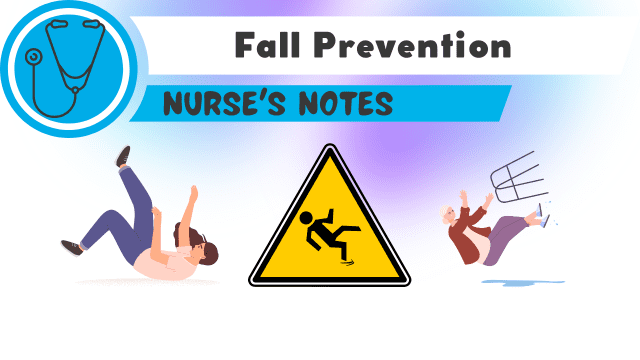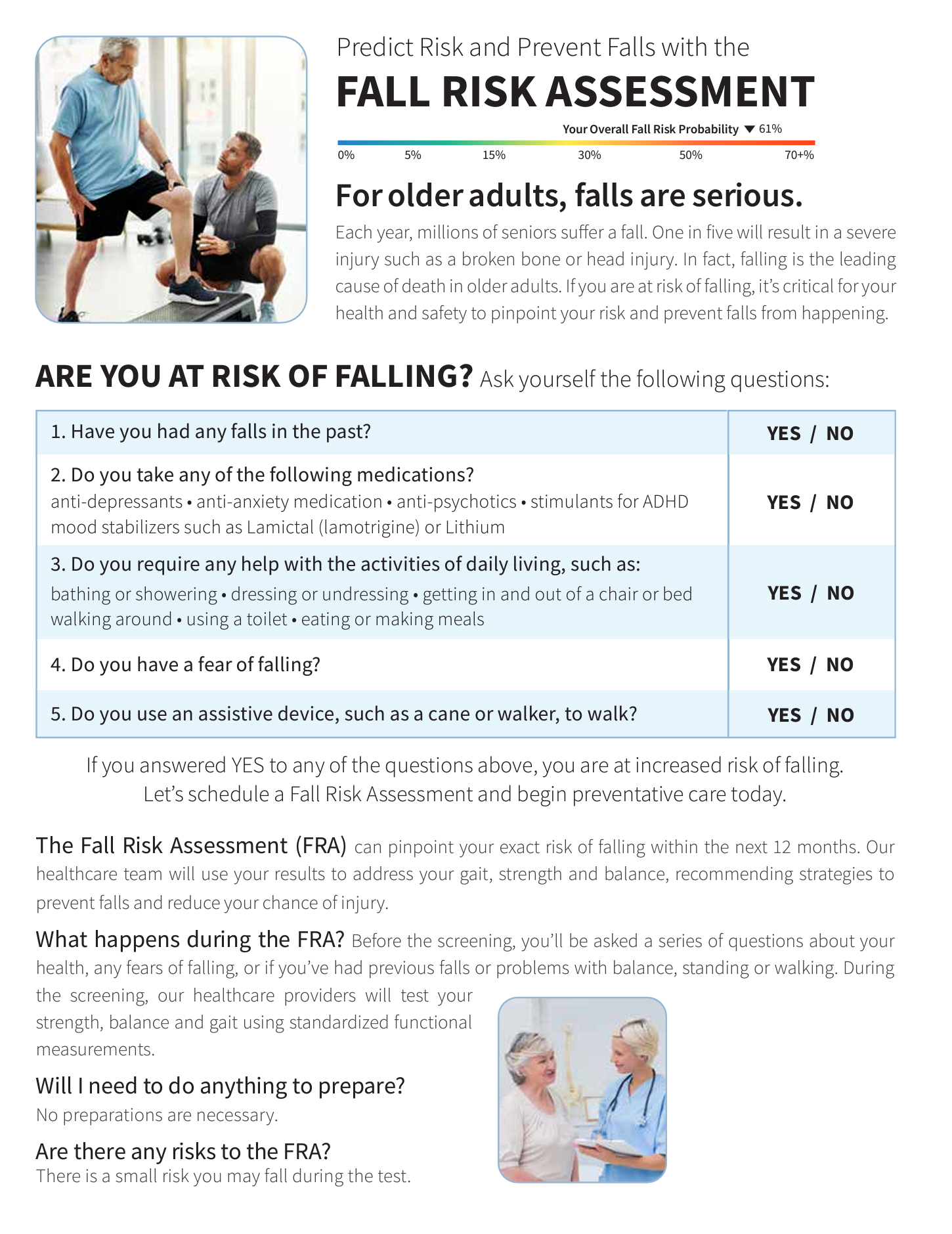The 8-Second Trick For Dementia Fall Risk
The 8-Second Trick For Dementia Fall Risk
Blog Article
The Only Guide for Dementia Fall Risk
Table of ContentsSome Of Dementia Fall Risk4 Simple Techniques For Dementia Fall RiskSome Ideas on Dementia Fall Risk You Should KnowDementia Fall Risk - QuestionsThe Basic Principles Of Dementia Fall Risk
Make sure that there is a marked location in your medical charting system where personnel can document/reference ratings and document pertinent notes connected to drop prevention. The Johns Hopkins Autumn Danger Evaluation Device is one of numerous tools your staff can use to aid stop damaging clinical occasions.Client drops in health centers are usual and incapacitating unfavorable events that linger despite years of effort to reduce them. Improving interaction throughout the analyzing registered nurse, treatment group, client, and patient's most entailed loved ones might enhance autumn avoidance efforts. A group at Brigham and Women's Health center in Boston, Massachusetts, looked for to establish a standard loss prevention program that centered around boosted communication and client and family members involvement.

The advancement team highlighted that effective implementation relies on client and staff buy-in, assimilation of the program into existing operations, and fidelity to program procedures. The team noted that they are facing exactly how to ensure connection in program execution during periods of situation. Throughout the COVID-19 pandemic, for example, a boost in inpatient drops was related to restrictions in person engagement in addition to constraints on visitation.
Everything about Dementia Fall Risk
These occurrences are typically thought about preventable. To carry out the treatment, companies need the following: Access to Fall pointers sources Fall TIPS training and retraining for nursing and non-nursing staff, including new registered nurses Nursing operations that permit individual and household interaction to conduct the falls analysis, guarantee use the avoidance plan, and conduct patient-level audits.
The outcomes can be highly destructive, frequently accelerating patient decrease and creating longer hospital keeps. One research study approximated remains increased an added 12 in-patient days after a person autumn. The Fall TIPS Program is based on engaging patients and their family/loved ones throughout three major procedures: evaluation, personalized preventative treatments, and bookkeeping to make certain that individuals are taken part in the three-step autumn avoidance procedure.
The client assessment is based upon the Morse Fall Range, which is a verified autumn danger analysis tool for in-patient medical facility setups. The range includes the six most usual reasons patients in hospitals drop: the patient autumn history, risky conditions (consisting of polypharmacy), use IVs and various other external tools, mental status, stride, and wheelchair.
Each threat aspect relate to several workable evidence-based treatments. The nurse produces a strategy that incorporates the treatments and shows up to the care team, person, and household on a laminated poster or published visual aid. Registered nurses develop the strategy while fulfilling with the client and the person's family.
Getting My Dementia Fall Risk To Work
The poster acts as an interaction device with other members of the individual's treatment group. Dementia Fall Risk. The audit element of the program consists of analyzing the person's expertise of their risk aspects and prevention plan at the unit and health center degrees. Nurse champions conduct at the very least five individual meetings a month with people and their family members to inspect for understanding of the autumn prevention strategy

An approximated 30% of these falls outcome in injuries, which can vary in extent. Unlike other damaging occasions that need a standard medical feedback, fall avoidance depends highly on the demands of the client.
Getting The Dementia Fall Risk To Work

Based on bookkeeping outcomes, one site had 86% conformity and two websites had over 95% conformity. A cost-benefit analysis of the Fall TIPS program in 8 medical facilities approximated that you can check here the program cost $0.88 per individual to apply and caused financial savings of $8,500 per 1000 patient-days in direct expenses connected to the avoidance of 567 falls over three years and 8 months.
According to the development group, organizations thinking about applying the program should carry out a preparedness analysis and drops prevention spaces evaluation. 8 Additionally, organizations ought to make certain the necessary facilities and process for application and create an implementation plan. If one exists, the organization's Autumn Prevention Task Pressure must be entailed in preparation.
Some Ideas on Dementia Fall Risk You Need To Know
To start, companies ought to make certain conclusion of training modules by nurses and nursing aides - Dementia Fall Risk. Medical facility staff should examine, based on the demands of a medical facility, whether to use a digital health and wellness record hard copy or paper variation of the autumn prevention plan. Applying groups should recruit and educate nurse champs great post to read and develop procedures for bookkeeping and reporting on fall information
Staff require to be associated with the procedure of revamping the operations to involve clients and family in the analysis and prevention strategy process. Solution ought to be in area to ensure that units can recognize why an autumn took place and remediate the cause. Much more particularly, registered nurses ought to have networks to offer recurring feedback to both team and system leadership so they can change and enhance autumn avoidance workflows and connect systemic troubles.
Report this page